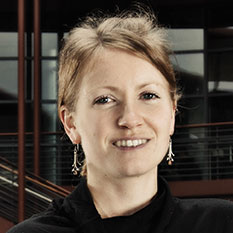Open-access everything: Peter Binfield on freeing up scientific knowledge
Harvard administrators said early this month that they would, despite a $32 billion endowment, be looking at ways to cut operating costs. One expense on the chopping block: university subscriptions to academic journals. Annual fees for publications like The Journal of Comparative Neurology can reach as high as $29,113, the public radio show Marketplace reports.
Medicine X speaker Peter Binfield, PhD, (left, with his co-founder Jason Hoyt, PhD) believes in the freer distribution and use of scientific knowledge. Like other critics of the established academic publishing paradigm, he sees inefficiency and unfairness in the way journals handle researchers’ intellectual property. (They take over the copyrights for papers they publish, rely on volunteer work by researchers in the peer review process, and serve the content at high prices to mainly wealthy institutions, making accessing and reusing content difficult.) So, like pioneers in other disciplines of the open-source movement, he’s using the web to chip away at their fortress.
For the last four years, Binfield acted as publisher at PLOS ONE, which blazed a trail by charging authors a per-use publishing fee and allowing them to retain copyright ownership of their work. It also did away with subscriptions and made content freely available online under a Creative Commons Attribution License. Six years into its existence, PLOS is now the world’s largest open-access journal, receiving around 150 submissions a day and publishing about 3 percent of the world’s scientific literature.
Now, Binfield hopes to go a step further: In May, he left his position at PLOS to launch PeerJ, a journal founded on the same premise as the larger journal but based around a lifetime membership structure. Rather than pay between $1,000 and $5,000 per publication, authors have the option to choose one of three annual fee levels, ranging from $99 to $299, which correspond to a given number of free published articles each year.
“PLOS ONE has made a dramatic impact, but you can’t experiment that much with something so big,” Binfield says. “It’s an exciting challenge to start something new, with an innovative, experimental business model and to do things like drop the price as much as possible – towards zero, for instance.”
PeerJ seeks to generate a feeling of community and ownership among its users by logging authors’ interactions on the site and generating member profiles.
“A lot of people have observed that this is a little bit like setting up a scholarly society – perhaps the original way societies were set up, to be a group of peers who have some sort of likeminded purpose,” Binfield says. “We’re not trying to be the Facebook for scientists or anything like that, but I think by the interactions and by the functionality of the site, we’ll build up a community that should interact quite nicely.”
Freeing scientific knowledge from single-entity ownership has obvious resonance with the work of building a more transparent and patient-centered healthcare system, and Binfield is looking forward to talking about his new initiative at Medicine X 2012.
“Open-access publishing is not just a cheaper way of publishing. We’re doing it because we think it’s actually a better way to get content – research and results – out there, which will then accelerate scientific research,” Binfield says. “People will be able to remix it and data mine it. And the end result is a great improvement in the way science is done.”
“The Medicine X concept is very similar from a different point of view. By making medicine more open, more transparent, allowing people to form connections through social media and to interact with their doctors more easily, the process is just naturally improved.”
We hope you’ll join us in September to learn more about Binfield’s ventures in the open-access world.
-
[…] Curēus joins the ranks of a growing number of open-access journals including PLoS, which was founded a decade ago by UC Berkeley and Stanford scientists. Peter Binfield, former PLoS One editor and co-founder of PeerJ, discussed how open-access publishing can accelerate scientific research in this past Medicine X blog entry. […]
[…] Curēus joins the ranks of a growing number of open-access journals including PLoS, which was founded a decade ago by UC Berkeley and Stanford scientists. Peter Binfield, formerPLoS One editor and co-founder of PeerJ, discussed how open-access publishing can accelerate scientific research in this past Medicine X blog entry. […]
Leave a Comment







I think the initiative by Peter, is really great as a lot more people will now have access to research knowledge with almost no financial barrier. This will definitely spur innovation.